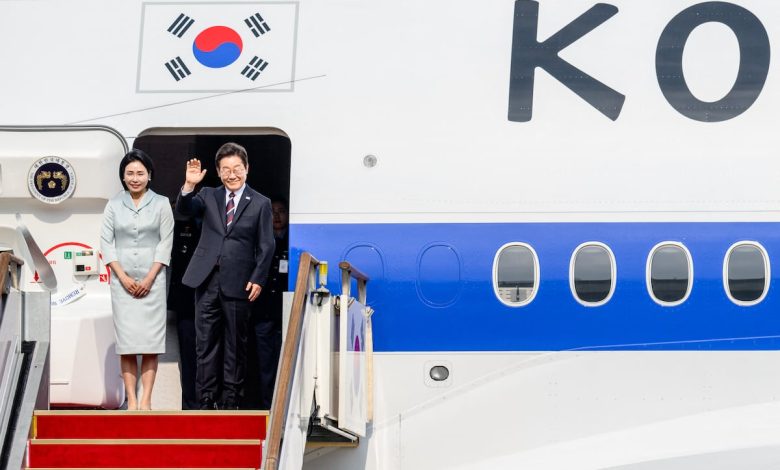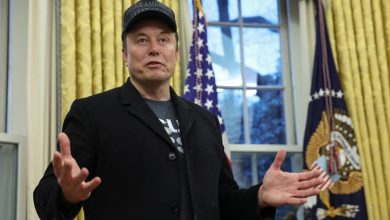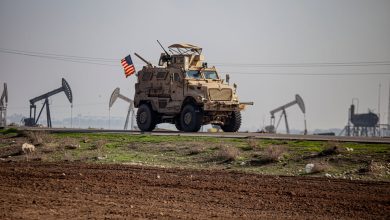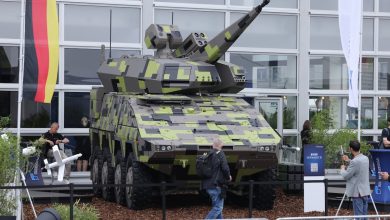South Korea’s new leaders seek continuity on key defense issues

MANILA, Philippines — After winning this month’s snap elections, South Korea’s President Lee Jae-myung appointed lawmaker Ahn Gyu-back as defense minister in a role historically held by retired military generals.
Ahn has been a lawmaker since 2008 and leads the parliamentary special committee that investigates former President Yoon Suk Yeol, whose brief December declaration of martial law led to his arrest and subsequent impeachment.
Ahn’s appointment also marks a significant shift in the civilian-military balance in the South, analyst Kim Ju Hyung, President of Seoul-based Security Management Institute, told Defense News. Kim specializes in U.S.-Korea relations and SMI is a think tank affiliated with the National Assembly.
Ahn has “deep legislative and defense oversight experience,” says Kim, and being chosen to lead the ministry of defense means pushing reforms and transparency. It also signals “continuity and reliability” to Washington since Ahn is “not anti-alliance.”
“Rather, he’s a reform-minded moderate who may emphasize technological upgrades and alliance coordination without being overly deferential,” Kim said.
Lee’s recent victory raised uncertainties over the continuity of South Korea’s security and defense policies. Former President Yoon has taken a hardline stance against the North while Lee’s Democratic Party pushed for peaceful unification talks.
RELATED
As a lawmaker, Lee lamented the breakdown of negotiations with North Korea, openly criticized security ties with the U.S. and Japan, and panned increases in cost-sharing agreements that sustained the U.S. Forces Korea footprint on the peninsula.
Despite these, Lee will keep existing defense and security mechanisms, including the landmark Camp David trilateral summit talks and the nuclear-sharing pact with the U.S., Kim said.
“Initially, Lee will very likely pursue a status quo strategy since he needs to reassure South Korean conservatives,” Kim said. North Korea remains “antagonistic” even with Lee in office, he added.
This month, North Korea relaunched a 5,000-ton destroyer named Kang Kon, the first in a series of warships Pyongyang plans to build and deploy in the Pacific. The North also fired 10 rounds of rockets into the Yellow Sea last week after South Korea held air drills with the U.S. and Japan.
“Any major departures from Yoon-era security policy would be politically risky at this stage, especially without clear shifts in North Korea’s behavior,” Kim said.
This means Lee will keep the three-axis defense system, a comprehensive chain of counteroffensive military operations against a North Korean first strike.
He is also expected to maintain real-time data sharing and missile defense coordination with the U.S. and Japan despite Seoul’s plans to renew economic ties with Beijing and revive peaceful unification talks, Kim said.
While Lee will not attend the NATO Summit this week, he is expected to meet with President Donald Trump to discuss tariffs, a negotiation that may also include defense spending and the cost of keeping 28,000 American troops in the Korean peninsula.
Washington has pushed allies to double defense spending to address threats from China, Russia and North Korea. South Korea already spends 2.7% of its GDP on defense — and the increase will be a fiscal burden, Kim said.
“Domestically, a leap to 5% would be politically contentious and fiscally difficult,” Kim said.
“The Lee administration may rhetorically align with the broader rationale — especially given the dual contingency threat from China and North Korea — but actual movement will be cautious.”
Washington is also reportedly reassessing defense cost-sharing agreements with South Korea, and Trump wants significant increases to Seoul’s contributions under the Special Measures Agreement.
In 2024, Seoul and Washington sealed the deal for a new five-year term with payment on the first year amounting to $1.41 billion (1.51 trillion won) beginning in 2026.
Lee’s Democratic Party has voiced concerns over the South’s overdependence on the United States, including the presence of American troops there. Lee will likely follow this playbook and approach the negotiations with caution, Kim said.
The two countries could also open renegotiations, Kim said, but Seoul should handle it with deft, quiet diplomacy since it will likely negotiate to reduce costs or restructure payment terms.
“Although they haven’t publicly called for a formal revision of the most recent SMA, a change in administration could open the door to soft renegotiation — such as seeking more flexibility in implementation, redirecting funds toward mutually beneficial projects like joint AI or space-based capabilities, or slowing the pace of ROK [Republic of Korea]’s financial increases,” Kim said.
Seoul, however, should also reframe the agreement as a “joint strategic investment” rather than burden-sharing, and include defense exports, overseas deployments, and tech and infrastructure contributions in the negotiations, Kim said.
“The Lee administration should adopt a dual-track strategy: proactively demonstrate Seoul’s value as a high-capability security partner in the Indo-Pacific, while quietly negotiating terms that avoid abrupt shifts or public confrontation,” he said.
Leilani Chavez is an Asia correspondent for Defense News. Her reporting expertise is in East Asian politics, development projects, environmental issues and security.







